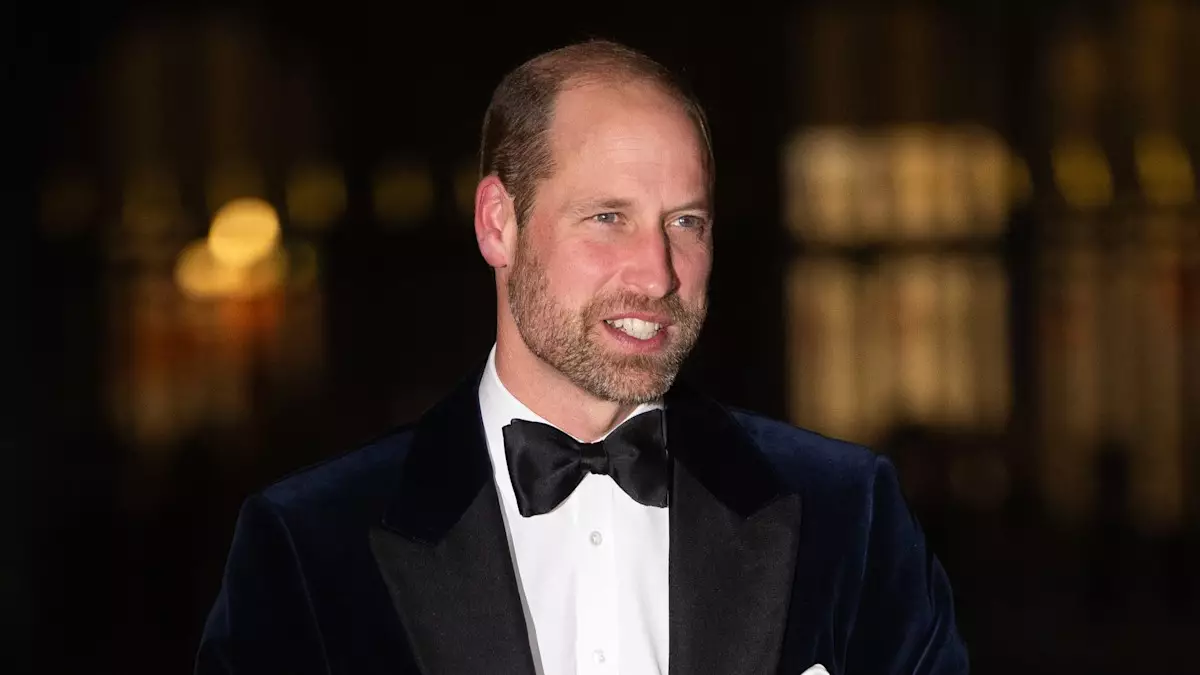Youth homelessness represents a significant societal challenge, one that necessitates immediate and comprehensive solutions. Recently, at the Centrepoint Awards, Prince William emphasized the urgent need for “systemic change” in addressing this pressing issue. His remarks spotlighted a vision where prevention is prioritized over mere management, advocating for accessible living options that enable young individuals to thrive independently. As we dissect his speech and the broader implications of this issue, it becomes clear that true transformation requires more than just acknowledgment; it demands concerted efforts from all societal sectors.
During the award ceremony, the presence of youth who have triumphed over adversity served to underscore the profound impact of supportive structures in the lives of young people experiencing homelessness. Prince William interacted with nominees and finalists, emphasizing the inspiring tales of resilience they represented. This recognition is crucial, as it not only honors individual achievements but also highlights the potential for success that exists when young people receive the right support. Shannon, one of the award winners, articulated the surreal experience of meeting the Prince. Her reflections reveal how personal validation from influential figures can ignite hope and ambition in young individuals facing significant life challenges.
The Prince’s call for a shift from management strategies to preventive approaches is a paramount aspect of tackling youth homelessness. Existing systems often prioritize temporary solutions, such as shelters and emergency assistance, which do not adequately address the underlying factors contributing to homelessness. Prince William’s assertion that achieving systemic change is essential indicates a deeper understanding of the complex web of factors that lead to youth homelessness, including economic instability, family breakdown, and mental health challenges. By focusing on prevention, stakeholders can create enduring solutions that empower young people rather than merely providing them with stopgap measures.
Prince William’s speech also implored attendees to reflect on their roles in catalyzing change within their communities. This call to action serves as a reminder that ending youth homelessness is not solely the responsibility of charities or government agencies—it requires a collective effort from individuals and organizations alike. The importance of fostering community involvement cannot be overstated. Engaging community members not only provides a network of support but also cultivates a culture of understanding and empathy, essential for eradicating stigma surrounding homelessness.
Seyi Obakin, CEO of Centrepoint, highlighted the vital role that corporate partnerships play in addressing youth homelessness through initiatives that support education and job training. These collaborations are critical, as they help to bridge the gap between corporate responsibility and community needs. By investing in programs that provide vocational training and apprenticeships, companies can significantly contribute to young people’s chances of securing stable and sustainable livelihoods. This partnership approach illustrates that the fight against youth homelessness can yield concrete benefits not only for individuals but for society as a whole.
The stories shared during the Centerpoint Awards, like those of the awardees, function as powerful narratives that challenge norms and perceptions about homelessness. When individuals like Shannon recount their journeys—from overcoming mental health issues to achieving academic and professional success—their experiences dismantle stereotypes and provide a more comprehensive understanding of the complexities surrounding homelessness. They serve as beacons of hope, illustrating that change is possible and that with the right support, young people can reclaim their narratives. It is these narratives that catalyze community members and policymakers toward action.
The issues surrounding youth homelessness require a multi-faceted response characterized by systemic changes in policy, community involvement, and corporate engagement. Prince William’s insistence on prevention rather than merely management represents a progressive approach that emphasizes empowerment and autonomy for young people. As the collective responsibility of society unfolds, stories of triumph and transformation remind us that change is not only necessary but achievable. The path to ending youth homelessness exists, and it is paved with collaboration, compassion, and a shared commitment to building a future where every young person has access to opportunities for a meaningful and independent life.

